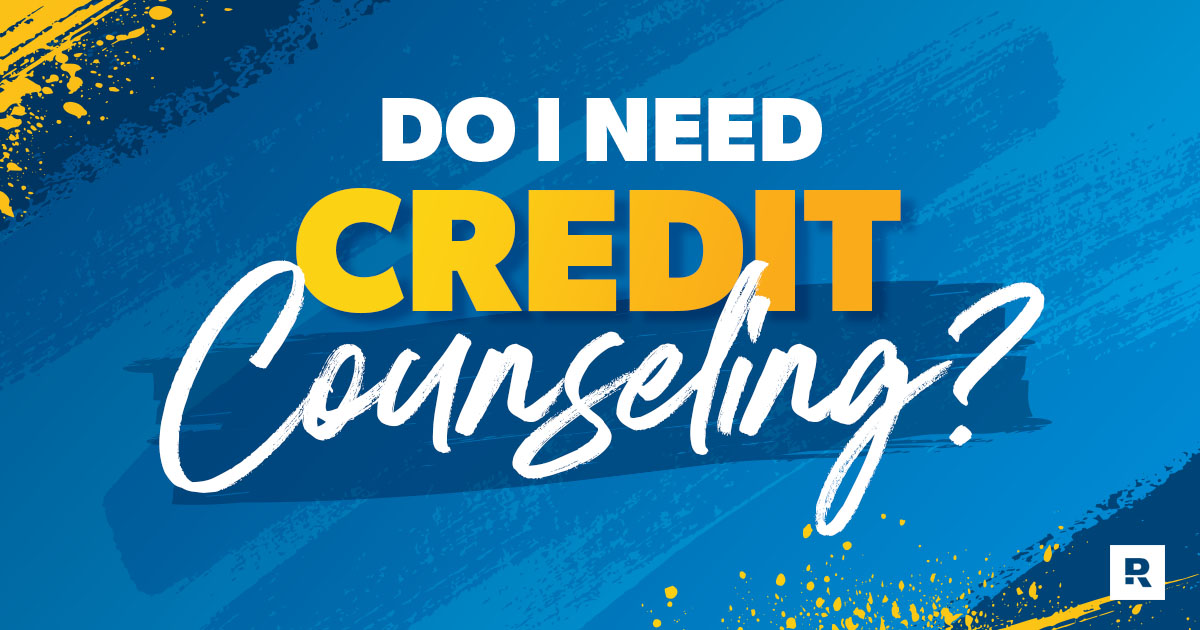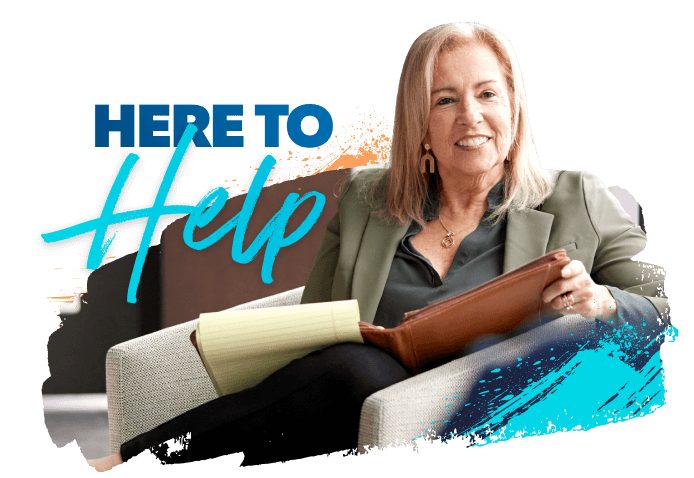
These days, if it feels like it’s hard to pay your monthly bills on time, let alone keep food in the fridge and gas in the tank, you’re not alone. But don’t let financial stress lead you straight into the open arms of credit counseling and bankruptcy. If you’ve been thinking about seeking credit counseling services, there are some things you need to know. Like what credit counseling is, how it works, and why there’s a better way to deal with your debt.
What Is Credit Counseling?
Credit counseling is the process of working with a credit counselor to help manage your debt and avoid bankruptcy. You could say credit counseling is like therapy—but for your finances.
Choosing to go through credit counseling means asking a third party (credit counselor) to scour your finances and help you come up with a reasonable plan to pay back your debt. Sometimes, that looks like a debt management plan (DMP), and other times, that looks like working with your counselor to learn the basics of personal finance so you can get a better handle on your bills.
How Does Credit Counseling Work?
Credit counseling is oftentimes a person’s last-ditch effort to save their finances from the pit of bankruptcy or foreclosure. (Though, if you’re going to file for bankruptcy, you may be required to complete credit counseling anyway.)
When you’re in the deep end of debt and can’t get the debt collectors off your back, you might be tempted to think credit counseling is the next right step. (But it’s not the help you actually need.) Here’s how it really works:
1. Gather all your info.
The first thing credit counseling agencies will ask you to do is gather your financial info—all of it. Your bank statements, your credit card statements, your mortgage payment info, what you owe (and to whom), and anything else you can think of. They’ll want to wade through every single detail to get a full picture of what your finances look like.
2. Set up an initial appointment.
After you’ve decided which credit counseling agency you want to work with, make your appointment. Most agencies offer in-person and virtual appointments. The initial appointment is like a meet and greet. You show them the state of your finances, hear what your options are, and decide if you want to work together. This appointment is a great time to ask questions like: Are they accredited? What fees do they charge? What services do they offer? Are they going to just offer a debt management plan or are they going to walk with you through the process?
3. Come up with a plan of action.
Next, you’ll work with your credit counselor to come up with a personal plan of action for getting out of debt. Many credit counseling services will educate you about personal finance and budgeting, show you how to manage your debt, and come up with a debt management plan (DMP) to help you dig yourself out. Not all credit counseling agencies will push you toward DMPs right out of the gate, but you should watch out for those that do. (Psst . . . debt management plans aren’t the way to go, but more on that later.)
You’re Not Alone!
A financial coach is ready to answer your money questions and help you get back on your feet.
Does Credit Counseling Really Work?
Here’s the deal: There are no silver bullets or quick fixes when it comes to getting out of debt. Many people think working with a credit counseling agency will be a quick fix to get their finances back in working order. But that couldn’t be further from the truth.
It’s actually more likely that working with a credit counseling service will do you (and your finances) more harm than good. Not only does it hurt your credit, but (with some credit counseling services) it also will take you longer to get out of debt than if you pulled up your bootstraps and got to work yourself.
Pay off debt fast and save more money with Financial Peace University.
Not to mention, when you’re searching for the right credit counselor, you have to weed out the scammers. Sure, you might think opting for a nonprofit is the safe choice—but think again. Even nonprofit agencies aren’t always trustworthy. Some agencies hide their fees and others boldly overcharge you. And then there are other agencies that just take your money and run.
What Credit Counseling Services Exist?
Now that you know what credit counseling is and how it works, let’s dive into the kind of credit counseling services agencies offer. Some agencies focus solely on debt management plans, while others provide a variety of services that focus on specific areas you might need help with.
Here are a few of the top services these agencies offer:
- Debt management plans
- Student loan counseling
- Credit report reviews
- Bankruptcy counseling
- Small business financial counseling
- Homeownership counseling
- Reverse mortgage counseling
- Foreclosure prevention
For-Profit vs. Nonprofit Credit Counseling
If you’re looking for a credit counseling agency, you’ll find no shortage of options. There are a ton of agencies out there. And on top of that, some are for-profit and some are nonprofit.
Like we said earlier, the nonprofit agencies sound a little less scary somehow, right? Sure, on the surface. But remember, just because it’s a nonprofit, doesn’t mean you should trust them on the spot (or that it’s free). Nonprofit agencies still have fees associated with their credit counseling services. And they partner with creditors (like credit card companies) to make sure the bulk of their services are paid for. Yep, you read that right. Creditors and credit counseling agencies stay on friendly terms. But usually (if they’re reputable), nonprofit credit counseling agencies won’t push you into one specific service.
For-profit credit counseling agencies don’t try to hide the fact that they want your money—even if you’re buried up to your eyeballs in debt already. Most will try to push you into a debt management plan because they’ll make more money off of you.
Other Debt Management Plans
Debt management plans are just one example of how credit counselors try to “help” you get out of debt. With a DMP, you agree to a payment program with your credit counselor in the hopes of paying back your debts in three to five years. Your credit counselor will negotiate with your creditors on your behalf to try to knock the interest rate down or take care of those late payment fees. Often, your counselor will pause payments on your debts (causing you to rack up late fees on top of late fees), just to have some negotiation power. Their logic is, why would your creditors negotiate lower payments if you’re not having any trouble making them? Over the course of your DMP, you’ll make payments to your counselor or agency and they’ll make your payments for you (for a fee, of course).
But a DMP isn’t the only debt reduction option credit counseling agencies offer. They also offer things like debt settlement (where they settle your debt to a fraction of what you owe) or debt consolidation (where they combine your debts into one “easy payment” and one interest rate).
Listen, no matter what kind of debt management plan you’re looking into . . . there’s a better way. And it doesn’t include debt settlement, a DMP or even credit counseling, for that matter. All it takes is hard work, showing up for yourself and your family, and a dedicated commitment to getting out of debt for good.
The Best Way to Deal With Debt
The best way to deal with debt is to get on a monthly budget, increase your income, and start chipping away at your debt with a little something we call the debt snowball.
Here’s how it works:
- List your debts from smallest to largest (and don’t worry about the interest rate).
- Make minimum payments on all of them except the smallest. Then put every extra cent you have toward the smallest one until it’s completely paid off.
- Roll the payment you were making on that debt into the payment on your next smallest debt.
- Repeat on the next smallest debt and keep going until you’re screaming, “I'm debt-free!”
The best thing about the debt snowball method is the momentum. Sure, you may have thousands of dollars to pay off, but as you throw extra cash toward that first smallest debt each month, you’ll knock it out in no time. And when you do, it will feel so good. That feeling right there is what will keep you going until you’re completely debt-free. Folks, that finish line is so sweet and so worth it. Now, that’s debt help that actually works!
No matter how much debt you’re in, the best thing you can do for yourself and your family is get on a budget. Budgeting gives you permission to spend each month (while also making sure you don’t let your spending get out of control). EveryDollar is a free budgeting tool that will help you make a plan, track your spending, and stick to your financial goals. By doing a budget, you’re not just setting up a plan for the month—you’re setting yourself up for a lifetime of financial peace.
And speaking of financial peace . . . check out Financial Peace University (FPU). It’s the nine-lesson course that teaches you how to save for emergencies, drop debt like a bad habit, and build wealth for the future. Nearly 10 million families have learned how to become debt-free and win with money by taking FPU. You can too! Sign up here.



